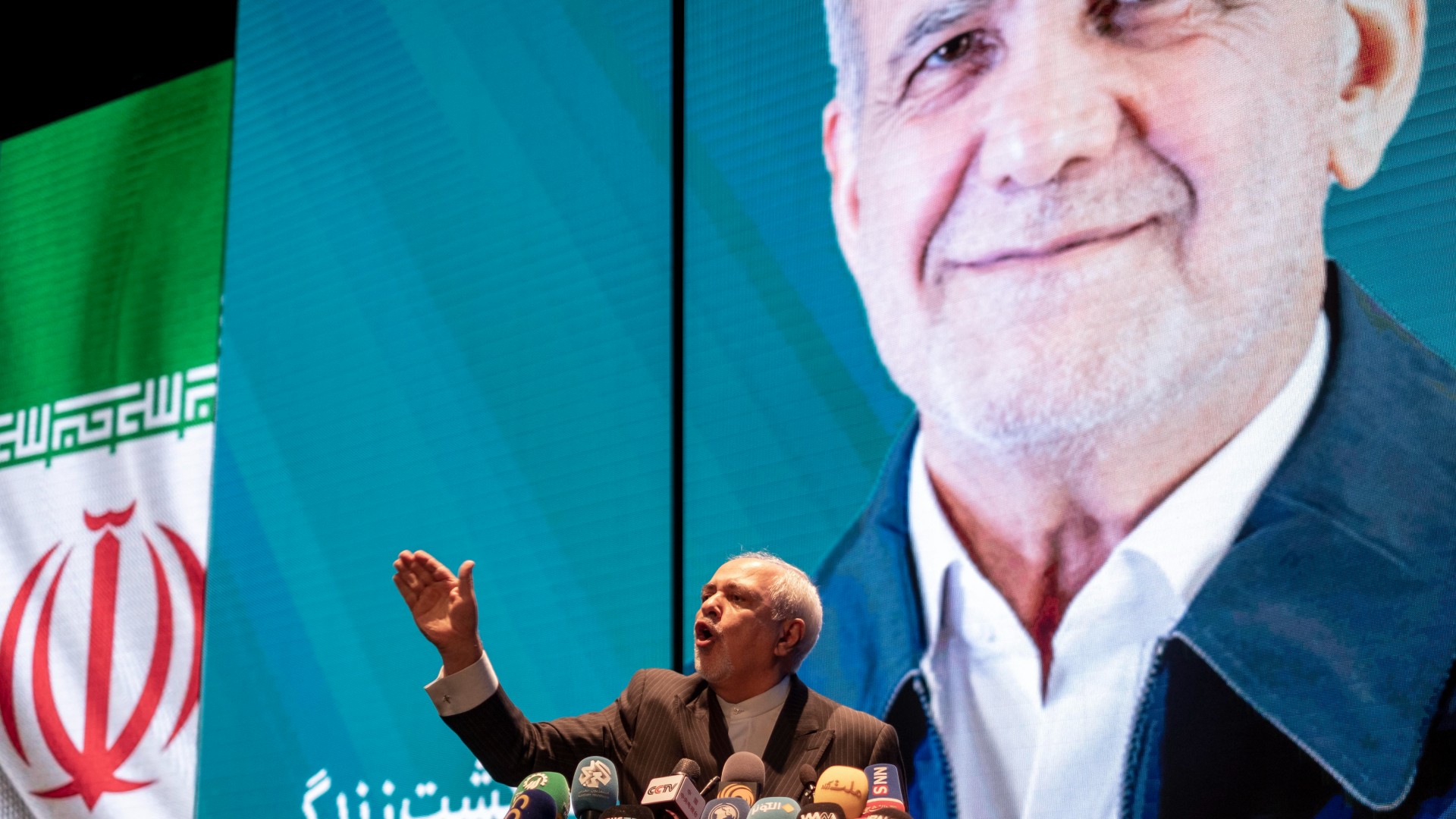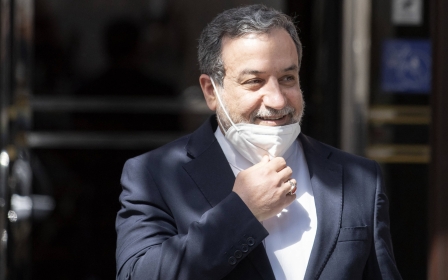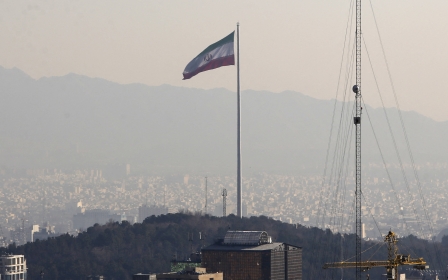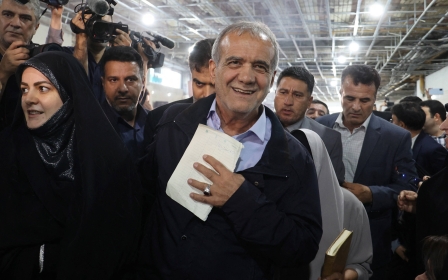Iran: Attacked from all sides, Zarif found no support from Pezeshkian
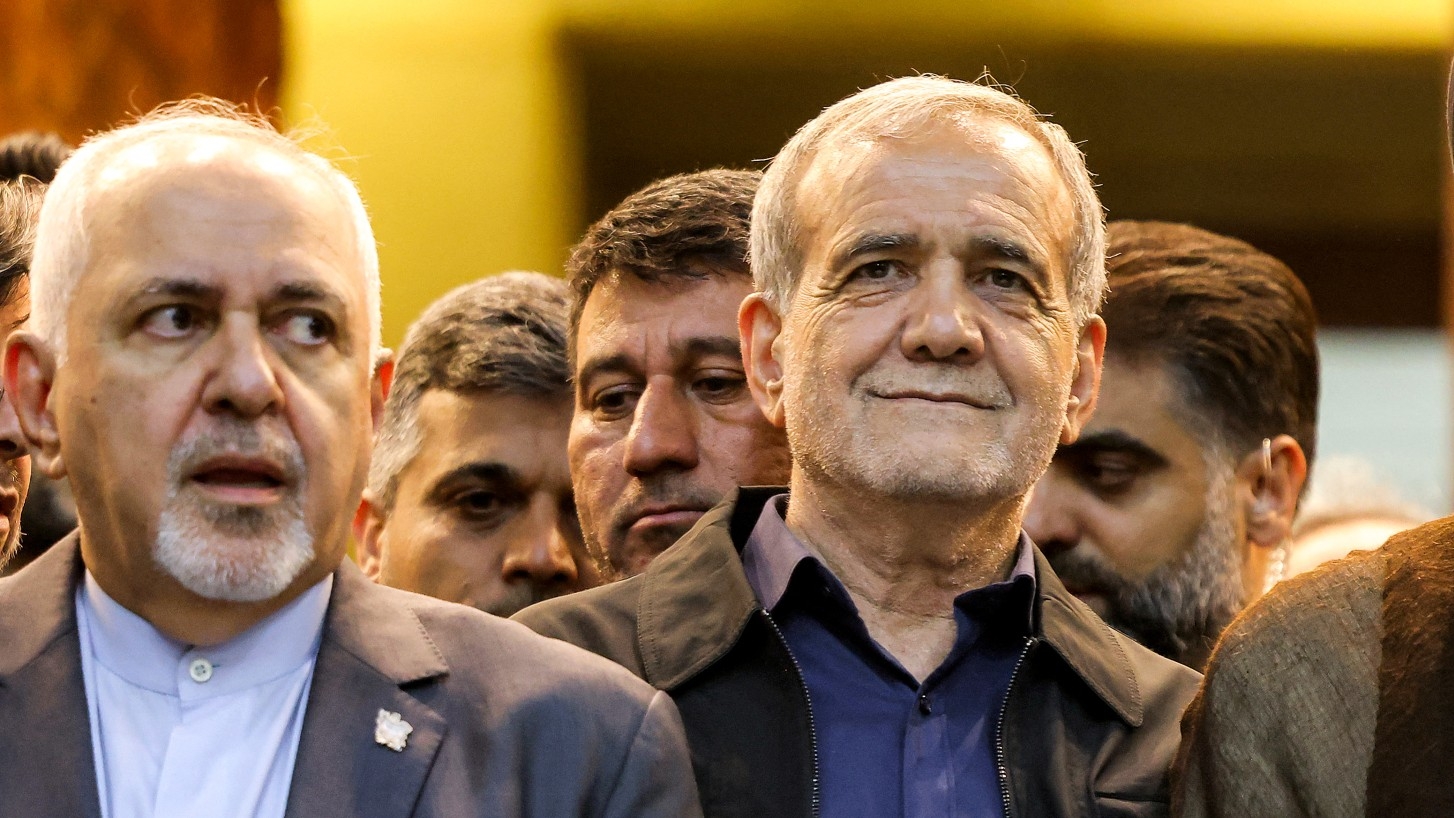
When Mohammad Javad Zarif re-entered politics during the presidential election this summer, Iranians saw a side of the popular former foreign minister that they were unfamiliar with.
He was combative, spiky and passionate, using fiery rhetoric that gave reformist candidate Masoud Pezeshkian’s listing campaign a shot in the arm.
Zarif travelled across Iran advocating for Pezeshkian and warning against handing the country to another ultraconservative government.
Known as an architect of the 2015 JCPOA nuclear deal with the US, Zarif rallied discontented and progressively minded Iranians around the outsider reformist that few predicted would win so handily.
So, when Pezeshkian did emerge victorious on 5 July, it was of little surprise that Zarif was handed a key role in his team as strategic deputy, leading a council tasked with identifying and proposing suitable ministers through consultations with experts.
New MEE newsletter: Jerusalem Dispatch
Sign up to get the latest insights and analysis on Israel-Palestine, alongside Turkey Unpacked and other MEE newsletters
Zarif got to work and delivered various names to the new president. Yet they were largely ignored. In the end, Pezeshkian preferred to appoint his cabinet based on his own preferences and political calculations.
Meanwhile, Zarif’s enemies began to target him.
'Obstructions and political harassment'
According to a source close to the government and two others in the reformist political camp, conservatives in the ruling establishment began pressuring Pezeshkian to force Zarif to resign.
They argued that a law passed two years ago prohibited senior officials from having children with foreign citizenship.
Zarif's children hold US citizenship, having been born in the United States while Zarif was studying there. This legal technicality provided a convenient pretext for conservatives to target the former foreign minister.
On Monday, Zarif officially quit his role.
"Zarif wrote a resignation letter, but Pezeshkian could have easily sought the supreme leader's permission to retain him. However, he chose not to," the source close to the government noted.
'Pezeshkian could have easily sought the supreme leader's permission to retain him. However, he chose not to'
- Source close to government
Zarif could have resisted the conservatives more effectively, one reformist source said, but there was mounting pressure on him from elsewhere: Vice President Mohammad Reza Aref and a circle of Pezeshkian's old friends.
"Many did not expect such obstructions and political harassment from Aref, especially since Zarif had been one of Aref's supporters for the vice-presidential position," the source told Middle East Eye.
"Pezeshkian didn't even insist that Zarif stay, which was unexpected and disappointing for many."
The second reformist source said Pezeshkian barely recognised the effort Zarif was making to find suitable candidates for the various offices he needed to fill.
While highly capable men and women selected by Zarif were shunned, the president appointed some controversial figures that seemed to contradict the politics espoused in the campaign.
"Pezeshkian appointed a former police officer, Eskandar Momeni, who has publicly supported the use of hijab enforcement vans, solely because Momeni was his friend from university," the second reformist source said.
Zarif snaps back
As he left his role, Zarif posted a bitter resignation letter on X.
"I am not satisfied with the result of my work, and I am ashamed that I could not fulfil the expert opinions of the committees regarding the inclusion of women, youth, and minorities in the cabinet," he wrote.
"Along with other issues, this situation has compelled me to return to academia. I apologise to Iranians for my inability to navigate the complexities of domestic politics."
In a separate post, he also addressed the rumours about his children’s citizenship, noting they were born in the US when he was a student 40 years ago, not when deployed in an official role.
“My family and I live in dear Iran, and we have no property outside of Iran," he said.
"I am personally under two US sanctions and one Canadian sanction. My wife and I cannot even travel as tourists to the United States, Canada, and several other countries."
Zarif’s departure was also accompanied by rumours that he was deemed a security threat, which the former diplomat made a note of pushing back against, stressing that no security body had opposed his appointment.
A former ruling establishment official with close knowledge of the developments told MEE it was likely that the rumours of security concerns were “fabricated by Aref's team”.
"Pezeshkian and Aref's actions were certainly welcomed by hardliners and the Islamic Republic establishment, as they also wanted Zarif out of the government."
Lost social capital
To many who backed Pezeshkian, believing that he would genuinely bring about the change that Zarif promised he would, the political divorce has come as a serious disappointment.
Some think it has revealed the president is not the reformer he seemed. Others believe Zarif’s exit seriously undermines the administration and its mandate.
An editor from a leading newspaper in Iran told MEE that Pezeshkian must do everything possible to bring Zarif back, as he was a crucial pillar of his government.
"With Zarif gone, an important part of Pezeshkian's social capital is lost, which is highly dangerous for the new reformist government," he said.
"Unfortunately, Zarif has significant enemies within both the reformist and conservative camps,” the editor added.
“In the eyes of hardliners, this is seen as a significant retreat by Pezeshkian, which could embolden them to make further demands."
Middle East Eye delivers independent and unrivalled coverage and analysis of the Middle East, North Africa and beyond. To learn more about republishing this content and the associated fees, please fill out this form. More about MEE can be found here.


